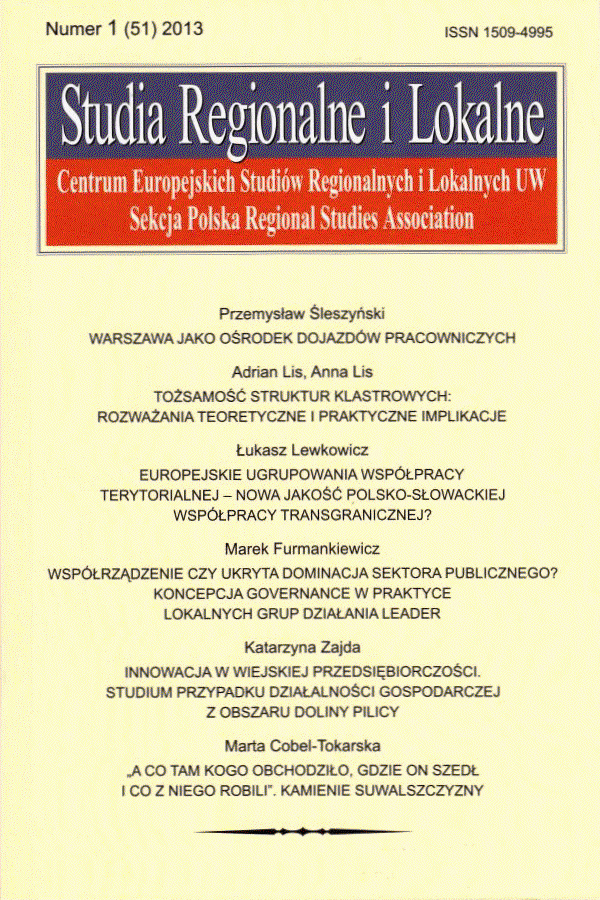Published in
1(51)/2013

- Przemysław ŚleszyńskiWarsaw as a commuting centre[more]
- Adrian Lis, Anna LisIdentity of cluster structures. Theoretical considerations and practical implications[more]
- Łukasz LewkowiczEuropean Groupings of Territorial Cooperation - a new quality of the Polish-Slovak trans-frontier cooperation[more]
- Marek FurmankiewiczCo-governance or hidden domination of the public sector? The concept of governance in the practice of `Leader` Local Action Groups[more]
- Katarzyna ZajdaInnovation in rural entrepreneurship. Case study of economic activities in the Pilica River Valley (Dolina Pilicy)[more]
- Marta Cobel-TokarskaRocks of the Suwalki region[more]
- Andrzej MiszczukAndrzej Raczyk, Sylwia Dołzbłasz, Małgorzata Leśniak-Johann, 2012, Relacje współpracy i konkurencji na pograniczu polsko-niemieckim, Wrocław: Wydawnictwo Gaskor, 375 s. (recenzja)[more]
- Jerzy ParysekRyszard Domański, 2012, Ewolucyjna gospodarka przestrzenna, Poznań: Wydawnictwo Uniwersytetu Ekonomicznego, 307 s. (recenzja)[more]
- Maciej J. NowakAlina Maciejewska (red.), 2012, Gospodarka przestrzenna w świetle wymagań strategii zrównoważonego rozwoju, Studia KPZK PAN, t. CXLII, Warszawa: KPZK PaN, 600 s. (recenzja)[more]


